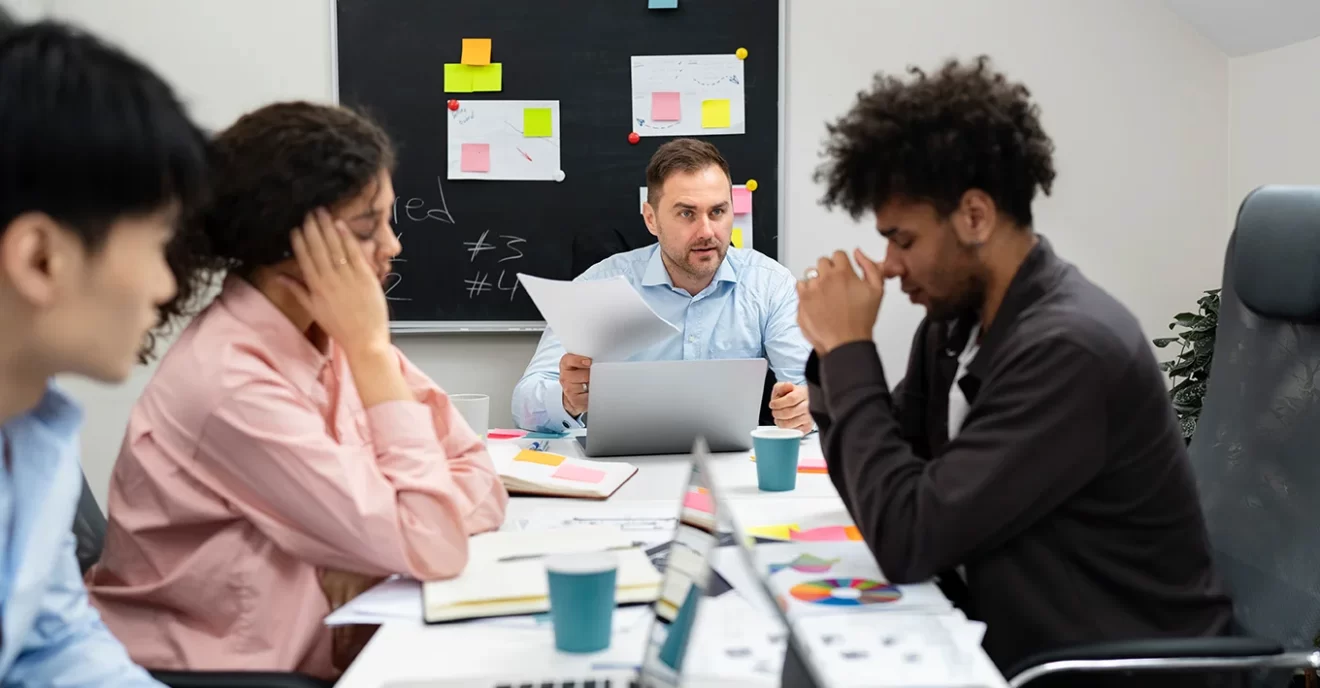Meetings can be exhausting, draining, and sometimes overwhelming.
But fear not! With a few simple strategies, you can recover swiftly and get back on track.
Here’s a beginner’s guide to help you bounce back after those lengthy meetings:
1. Take a Breath
After a meeting, it’s essential to take a moment to breathe deeply and relax. Close your eyes, inhale deeply through your nose, hold for a few seconds, and then exhale slowly.
This simple breathing exercise can help reduce stress and clear your mind.
2. Hydrate Yourself
Meetings often leave us feeling parched, so grab a glass of water and hydrate yourself. Dehydration can lead to fatigue and decreased concentration, so replenishing your fluids is crucial for staying alert and focused.
3. Stretch It Out
Sitting for prolonged periods during meetings can leave your muscles feeling stiff and tense. Take a few minutes to stretch your arms, neck, and back to release any built-up tension.
Simple stretches like shoulder rolls, neck tilts, and side bends can help improve circulation and boost your energy levels.
4. Reflect on Key Points
Reflecting on the key points discussed during the meeting can help solidify your understanding and retention of the information. Jot down any important insights, action items, or questions that arose during the discussion.
This not only helps reinforce your memory but also provides a roadmap for follow-up tasks.
5. Prioritise Tasks
After a meeting, you may find yourself loaded with new tasks and action items. Take a moment to prioritise your tasks based on urgency and importance.
Break down larger tasks into smaller, manageable steps and create a to-do list to keep yourself organised and on track.
6. Take Short Breaks
Don’t dive straight into your next task immediately after a meeting. Instead, give yourself permission to take short breaks in between to recharge and refocus.
Whether it’s a quick walk around the office, a brief chat with a colleague, or a few minutes of mindfulness meditation, taking breaks can help prevent burnout and maintain productivity.
7. Fuel Your Body
Meetings can be mentally taxing, so it’s important to fuel your body with nutritious foods to sustain your energy levels. Opt for balanced meals and snacks that provide a combination of protein, and healthy fats.
Avoid sugary snacks and caffeine, as they can lead to energy crashes later on.
8. Practice Mindfulness
Practising mindfulness can help you stay present and engaged, both during and after meetings. Take a few moments to check in with yourself and observe any thoughts or emotions that may arise.
Mindfulness techniques help you stay grounded and centred amidst the chaos of a busy day.
9. Set Boundaries
It’s important to set boundaries to prevent meetings from consuming your entire day. Communicate your availability and preferences for meeting times with your colleagues and managers. Schedule buffer periods in your calendar to allow for breaks and uninterrupted work time. Give yourself permission to unplug.
Setting boundaries helps ensure that meetings are productive and meaningful without overwhelming your schedule.
10. Celebrate Achievements
Finally, take a moment to celebrate your achievements and contributions during the meeting. Acknowledge your efforts and accomplishments, no matter how small they may seem. Celebrating milestones boosts morale and motivation, making it easier to tackle future challenges with confidence and enthusiasm.
Recovering from meetings is important. By incorporating these simple strategies into your routine, you can bounce back quickly and reclaim your productivity.
Remember to take care of yourself, prioritise your tasks, and stay present in the moment.
With a little self-care and mindfulness, you’ll be ready to tackle and deal with whatever comes your way!









